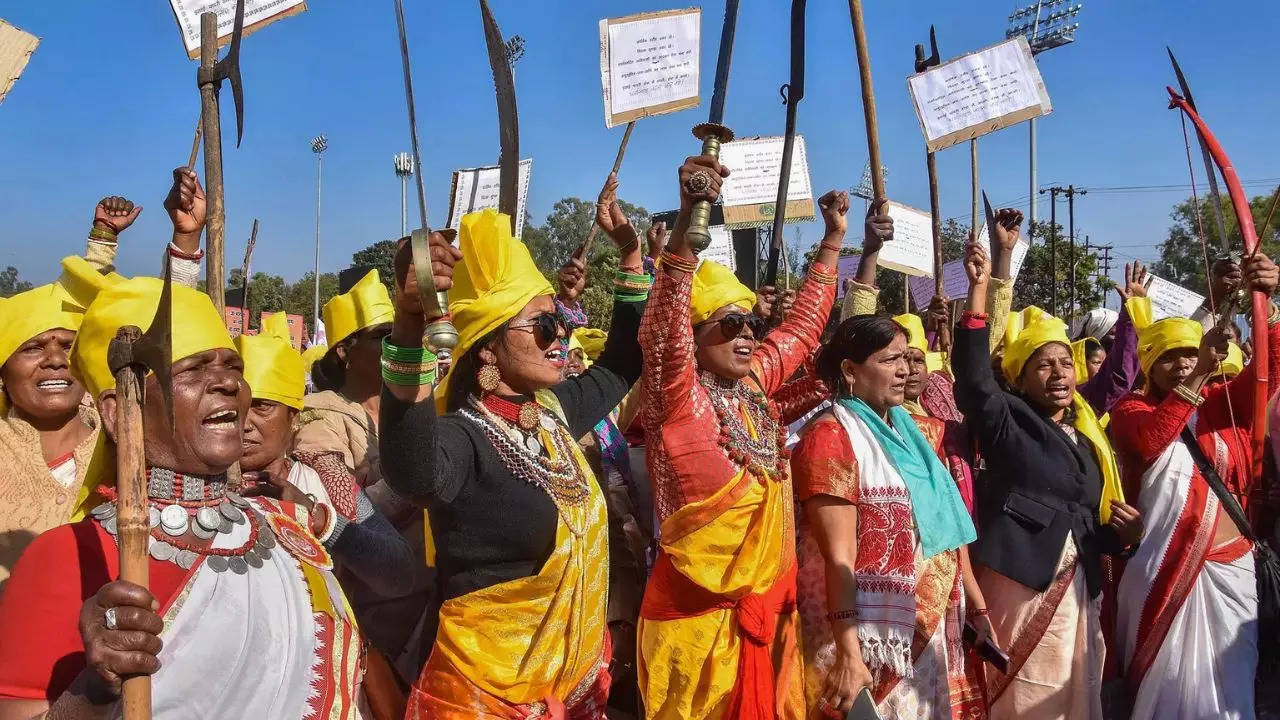On Christmas eve, Ranchi saw 5000 tribals swarming the streets under the aegis of Janjati Suraksha Manch (JSM)-a forum that has decided to bring Hindu tribals on one platform.JSM says tribals embracing Christianity get help from the Church and missionary institutions in their education and are also provided with financial help. This brings them socially and financially above their non-converted counterparts, who are deprived.
Those backing the de-listing campaign believe that the converted tribals get triple benefit: backing of foreign funds through churches, reservation benefits admissible to STs and the government benefits by virtue of being a religious minority.
“The percentage of tribals who have embraced Christianity in Jharkhand will be around 15-20% but if we look at the government jobs and class I officers including the IAS, 80-90% are those who are converts,” said former deputy speaker of Lok Sabha and BJP leader, Karia Munda, who presided over the rally in Ranchi.
While the demand for de-listing converted tribes is not new, growing dissent in various cities and the successful first mega rally on Sunday gave JSM a shot in the arm to hold the next one in Delhi. The date for the proposed February rally has not been decided yet. JSM, underlining the need to rationalise the disparity, said tribals from various states would raise the demand for reservation benefits for those who are actually poor, deprived and following their age-old traditions. “In similar meetings in Nagpur, Nasik and Mumbai, tribals, several thousand in numbers, gathered as they acknowledged the deprivation they have been facing,” said Munda.
National co convener of JSM, Rajkishore Hansda, said the architects of Indian constitution had made best efforts to protect the rights of 700-plus tribal and ethnic groups of the country, but these benefits went to a handful of ‘well-meaning tribals’ who were backed by the Church .
